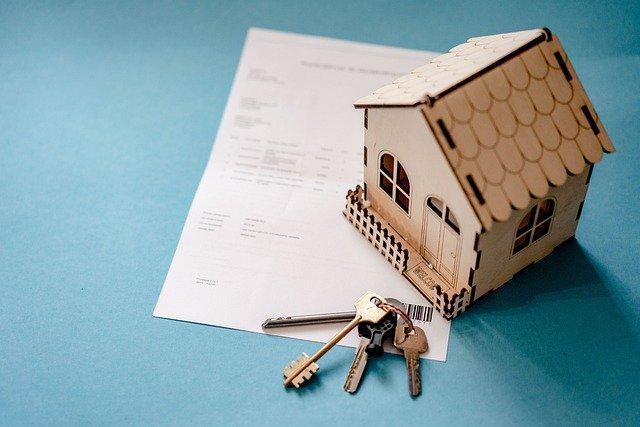Are you feeling financially stuck? Do you need funds to start new projects or consolidate debts? If you own a home, you might be able to leverage its equity for significant financial benefits.
While a mortgage is typically associated with the substantial debt taken on to purchase a property, it can also offer valuable financial opportunities. In this article, we’ll explore four banking products that allow you to borrow against your home equity.
What is equity in real estate?
In real estate, equity refers to the actual value you have in your property. It is the difference between your home's market value and the remaining balance on your mortgage.
Typically, your equity increases as you pay down your mortgage and when your property's value appreciates. This portion of your home's value can be a potential source of funding when you need additional cash.
What is available equity?
However, it’s important to understand that you cannot borrow the full net value of your property. Instead, you can access only a portion known as available equity.
To calculate available equity, subtract your mortgage balance from 80% of your home's current market value. This restriction helps lenders mitigate the risk of property devaluation.
Here's an example to illustrate how equity is calculated:
Suppose your home is valued at $420,000, and your mortgage balance is $230,000. The total net value of your property is:
$420,000 - $230,000 = $190,000.
However, only a portion of this net value can be used as available equity. To determine the available equity, perform the following calculation:
($420,000 x 80%) - $230,000 = $106,000.
The available equity, and therefore the maximum amount you can borrow, is $106,000.
How to borrow against your home equity?
There are several ways to leverage the equity in your home. Here’s a look at some options.

1. Refinancing
Refinancing your mortgage involves negotiating a new loan for a higher amount based on your property's equity. You can typically borrow up to 80% of your home’s current market value, within the limit of your available equity.
For example:
You purchased your home for $250,000. Its current market value is $370,000, and your mortgage balance is $180,000.
To calculate available equity:
($370,000 x 80%) – $180,000 = $116,000.
In this case, your available equity is $116,000.
You could refinance your mortgage up to this amount, potentially taking out a new loan of $296,000, which includes the $180,000 existing mortgage plus the additional $116,000.
However, keep in mind that mortgage refinancing will always be subject to an evaluation of your ability to repay the loan.
2. Collateral Mortgage
The collateral mortgage, also known as a subordinate mortgage, involves registering a mortgage for an amount greater than the original loan amount, up to 125% of your property’s current value. This allows you to borrow additional funds without needing to set up a new mortgage. Your home then serves as collateral for these loans.
This option can be used to secure a personal loan or to cover the down payment when buying a new property.
3. Home Equity Line of Credit
A Home Equity Line of Credit (HELOC) is a revolving credit product secured by the equity in your home. It allows you to borrow up to 65% of your property’s value and can be used for various purposes, including financing projects or covering the costs associated with purchasing a new home.
There are two types of HELOCs:
- Home Equity Line linked to a mortgage: You can get this type of HELOC alongside a mortgage if you make a minimum down payment of 20%.
- Standalone Home Equity Line of Credit: This option serves as an alternative to a traditional mortgage and requires a minimum down payment of 35%.
4. Reverse mortgage
With a reverse mortgage, you can borrow up to 55% of the property’s value, and there are no regular payments required. Repayment is only necessary if you move, sell the property, or in the event of death, offering a flexible solution.
A reverse mortgage is a borrowing option available for homeowners aged 55 and older, where only a primary residence can be used as collateral, making some properties ineligible.
Comparative table of different equity borrowing options
| Option | Available financing | Payment flexibility |
|---|---|---|
| Mortgage refinancing | Up to 80% of net value | Fixed monthly payments |
| Collateral mortgage | Up to 125% of current value | Additional borrowing possible |
| Home Equity Line of Credit (HELOC) | Up to 65% of net value | Flexible repayment |
| Reverse mortgage | Up to 55% of net value | No regular payments |
Advantages of borrowing against your home equity
Borrowing against your home equity offers several appealing benefits:
- Advantageous interest rates: Since your home is used as collateral, the interest rates are generally lower than those for unsecured loans, such as personal loans or credit cards.
- Access to larger amounts: You can borrow more compared to unsecured personal loans because the loan amount is based on your home’s value.
- Flexibility in fund use: Unlike some specific-purpose loans, the funds from your home’s equity can be used at your discretion.
- Debt consolidation: Using home equity can help consolidate high-interest debts, such as credit card balances or personal loans, into a single monthly payment with a lower interest rate.
Obtaining financing through your home mortgage: beware of the risks
While borrowing against your home equity offers benefits, it's essential to be aware of the risks and take necessary precautions before proceeding.
- Risk of over-indebtedness: Increasing your mortgage debt also raises your financial obligations. Excessive borrowing could lead to defaulting in making payments, potentially risking the loss of your home.
- Reduced equity: Using your home’s equity reduces the amount of equity you have, which may limit your ability to secure additional loans or decrease your return on investment if you decide to sell.
---
While leveraging your home equity can provide significant funding, but it demands thorough financial planning, and an awareness of the risks involved. Before borrowing, assess your repayment capacity and review your financial situation comprehensively. Seeking advice from a financial advisor can also be beneficial.
Are you looking to borrow against your home equity?
XpertSource.com can help you in your efforts to find a mortgage broker. By telling us about your project, we will refer you to top-rated experts, free of charge! Simply fill out the form (it only takes 2 minutes) and you will be put in contact with the right experts.

